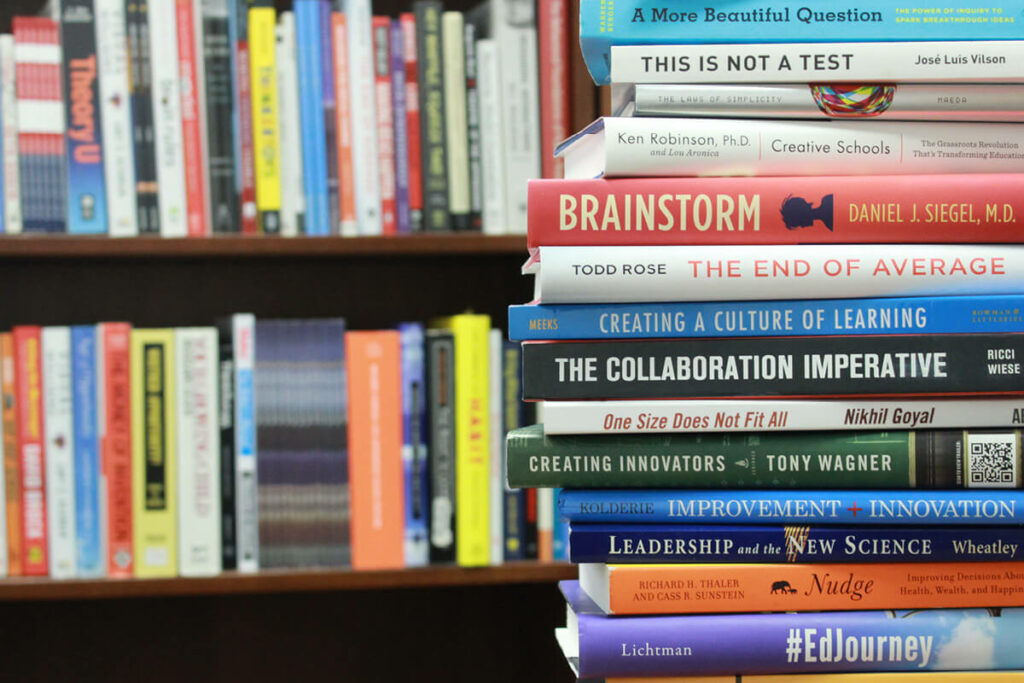
Partnering: Forge the Deep Connections That Make Great Things Happen
Jean Oelwang
“Richard Branson and Peter Gabriel, Archbishop Desmond and Leah Tutu, Jimmy and Rosalynn Carter, Ben and Jerry, and the cofounders of AirBnB”—to name a few. In Partnering, Jean Oelwang reflects on her work with and study of 60 of the greatest partnerships and collaborations of our time and lays out six common principles that underlie all of them. Whether you are interested in building stronger partnerships with members of your community or seeking deeper insight into the relationship building that is at the core of learner-centered practice, this book has something for you.

The Dawn of Everything: A New History of Humanity
David Graeber and David Wengrow
What do you remember about the early history of human civilization? You might recall something about Mesopotamia; or the trajectory of hunter-gatherer nomads forming agricultural and farming communities. But, what if we took another look at this history and what it can tell us about our own communities and society today? That is just what David Graeber and David Wengrow did in The Dawn of Everything. “Drawing on pathbreaking research in archaeology and anthropology,” they contend “the course of human history may be less set in stone, and more full of playful, hopeful possibilities, than we tend to assume.” This book is for anyone interested in shaking up their assumptions about what has already been and what has to be—aka every learner-centered leader.

The Regenerative Life: Transform Any Organization, Our Society, and Your Destiny
Carol Sanford
“But what if by re-conceiving what you do, you could change the world for the better?” In a time when even our boldest, bravest efforts to make an impact can still feel like not enough, Carol Sanford’s The Regenerative Life tackles this question and more, revealing new ways to see and conceive of our own work and the difference it is making. As learner-centered leaders seeking to transform the lives of the next generation every day, look to this book as a source for restoring hope and confidence that what you are doing matters.

A Collective Blooming: The Rise Of The Mutual Aid Community
Joe Lightfoot
The vision of equitable, learner-centered ecosystems is rooted in the notion of community. It is about the possibility of building an inclusive community of belonging in which young people can grow, learn, and thrive. It is about valuing and leveraging the assets and wisdom of the people and places within a community. It is about revitalizing a sense of community across generations, families, and localities in a time when, too often, decisiveness and vitriol rule the day. In A Collective Blooming, Joe Lightfoot explores one approach to (re-)building community—mutual aid systems, where “people work cooperatively to meet the needs of everyone in the community.” Read on to discover what we, as a learner-centered movement, might learn from this approach.

Parent Nation: Unlocking Every Child’s Potential, Fulfilling Society’s Promise
Dana Suskind, M.D.
As school buildings and child daycare centers closed in 2020, families worldwide had to grapple not only with a deadly, unpredictable health pandemic but also with how to juggle caring for their children and working from home. While this brought a particularly bright spotlight to the realities and challenges families face, the issues themselves were not new—childcare, education, and keeping children safe, healthy, and happy. And, in the US, the burden of navigating these challenges (pandemic or not) falls to parents. But, Dr. Dana Suskind, a pediatric surgeon, social scientist, and best-selling author, believes it does not have to be this way. Parent Nation offers the possibility of a future in which communities come together to better, more fully meet the developmental needs of our children (did anyone say “learner-centered ecosystem”?).
